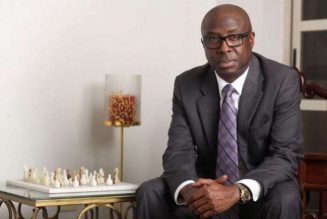Columnists
Time to make KRA professional
Friday March 03 2023
Times Tower in Nairobi, the headquarters of Kenya Revenue Authority. FILE PHOTO | DENNIS ONSONGO | NMG
The chairman of the Kenya Revenue Authority, Anthony Mwaura Nganga, has been forced to eat the humble pie and beat a hasty retreat over a categorical statement and announcement he had made on tax relief hardly a day earlier.
His first statement: “Kenya Revenue Authority in concurrence with the National Treasury has suspended all tax relief payments with effect from 28th Feb 2023 until further notice”.
I think somebody advised him that he had made a blunder which he needed to correct urgently. The making of tax policy is not within the mandate of KRA. And, the powers of the board chairman of KRA are limited to operational issues.
When he came back to correct the blunder, the delivery was almost comical. He insisted that he was ‘clarifying’ the statement he had made.
A clarification does not vacate categorical statements and announcements made by a regulator. The man should have just admitted the error and apologised. All human beings make mistakes.
This is what he said in the so-called ‘clarification’: “This does not mean that the reliefs have been scrapped. The scrapping of relief can only be done through amendment of the law”. Pure duplicity, if you asked me.
His appointment by President William Ruto as chairman of this key State agency did not come as a surprise to anyone. Where the public sector is well managed, appointments are based on skills and relevant experience.
Currently, the rave in the corporate world is what is known in business school mumbo jumbo as “deep domain knowledge and understanding”, the argument being that one needs to have a broad-based understanding of a particular industry to qualify to be appointed to office.
In Kenya, the situation is different and President Ruto’s administration has only followed his predecessors. Bad politics is why the history of parastatals has been a long and boring tale of inefficient and debt-plagued State agencies.
Read: KRA moves its domestic tax unit to Sameer complex
Even under a new Constitution, we are yet to discard the bad corporate governance practices that have undermined management and impeded critical strategic parastatals from helping the country to achieve its development ambitions.
It all starts with pre-election deals in which ethnic kingpins agree on a formula for sharing public jobs and positions between their cronies and to the exclusion of others.
The Deputy President, Mr Rigathi Gachagua, recently added to the nomenclature of this phenomenon by introducing the concept of shareholders and describing patronage as a system where ‘shareholders’ must eat while ‘non-shareholders’ sit out.
This is the practice of arbitrarily filling boards of parastatals with political appointees without regard to qualifications and experience and mainly on the grounds of political loyalty.
These political appointees and cronies will approach their work in the State agency as if what is most important is personal service, obedience, and duty to the ethnic kingpins who appointed them to those positions.
Modern corporate virtues such as hierarchical authority, expertise, and neutrality are thrown out of the window. When, as a political appointee to a top parastatal job, you know that you have the support of a powerful patron, you will engage in the freelance rent-seeking safe in the knowledge that you will enjoy protection from the appointing authority.
Do we realise what a stable and professionally run tax agency can deliver to the macro economy? Have we weighed the potential and role that a well-managed KRA can play as we struggle to shore up our dwindling revenues?
Pork barrel appointments will not end soon in this country. Mr Mwaura is eminently qualified for an appointment based on the political value he delivered to the new regime.
But what the KRA needs is a person that can leverage on his own status, calibre, and experience in public service to steer it to the next level. We want to widen and deepen the tax base.
Every other year, the bankers association publishes statistics that show that the banking sector pays a disproportionate share of corporate taxes when compared to its contribution to GDP.
Read: KRA misses tax targets by Sh27bn in Ruto presidency
The phenomenon of a compliant few is a very big issue. What this country needs is a well-managed and professionally run tax agency guided by a board that practises good corporate governance.







